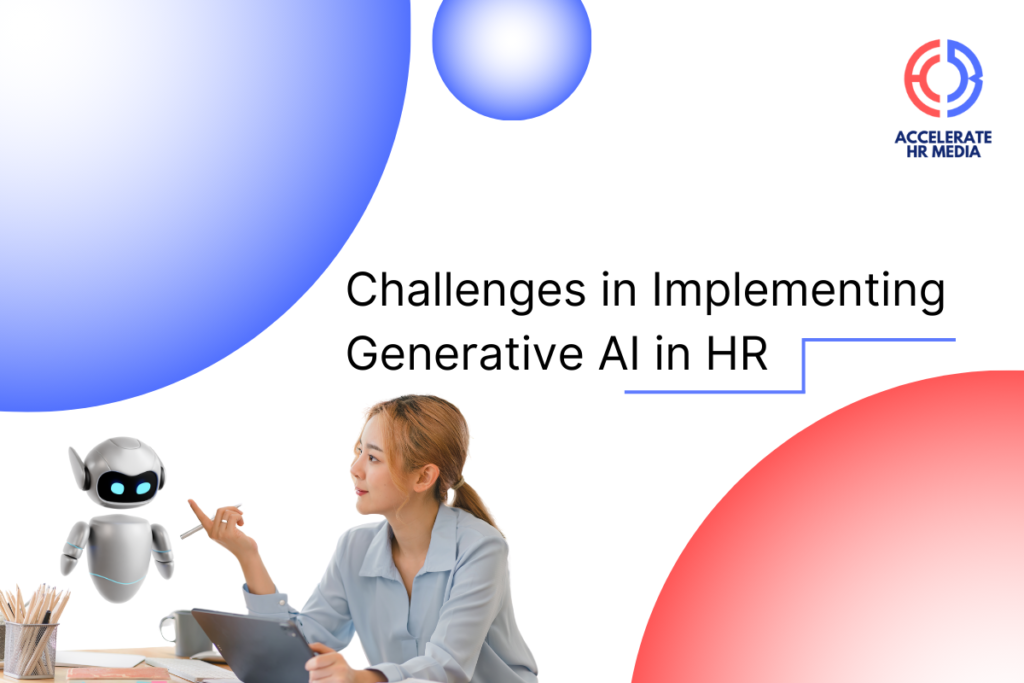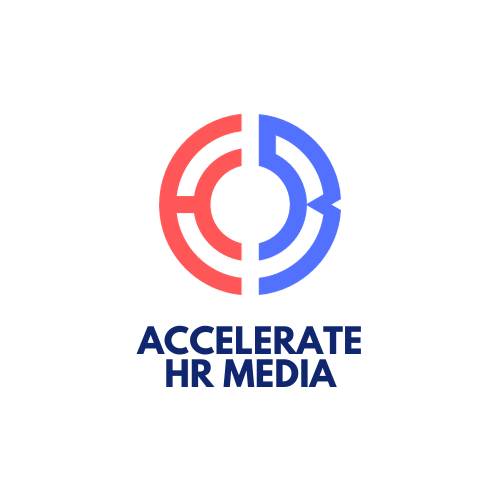
In recent years, the field of human resources (HR) has seen a significant transformation with the introduction of generative AI. This powerful technology has the potential to streamline processes, enhance decision-making, and improve the overall employee experience. However, implementing generative AI in HR is not without its challenges. In this blog, we will explore the common challenges faced by organizations and provide strategies for overcoming them to successfully integrate generative AI into HR practices.
Understanding Generative AI in HR
Generative AI refers to artificial intelligence systems that can create new content, such as text, images, or code, based on patterns learned from training data. In the context of HR, generative AI can be used for a variety of tasks, including:
- Recruitment: Generating job descriptions, screening resumes, and conducting initial interviews
- Employee Development: Providing personalized learning recommendations and career guidance
- Performance Management: Generating performance feedback and identifying areas for improvement
- HR Operations: Automating administrative tasks and providing self-service options for employees
By leveraging generative AI, HR professionals can save time, make more informed decisions, and deliver a better experience for employees.
Challenges in Implementing Generative AI in HR
While the potential benefits of generative AI in HR are significant, there are also several challenges that organizations must overcome to successfully implement this technology. Here are some of the most common challenges:
Data Quality and Bias
Generative AI systems are only as good as the data they are trained on. If the training data contains errors, inconsistencies, or biases, these issues can be reflected in the outputs generated by the AI system. This can lead to inaccurate or unfair decisions in HR processes such as recruitment and performance management.
Employee Privacy and Trust
The use of generative AI in HR raises concerns about employee privacy and data security. Employees may be hesitant to share personal information or engage with AI-powered systems if they are not confident that their data will be protected and used responsibly.
Lack of Explainability
Many generative AI systems, particularly those based on deep learning algorithms, are “black boxes” that make decisions based on complex patterns in the data. This lack of explainability can make it difficult to understand why certain decisions are made and to ensure that they are fair and ethical.
Integration with Existing Systems
Implementing generative AI in HR often requires integrating new technologies with existing HR systems, such as applicant tracking systems, learning management systems, and performance management software. This integration can be technically challenging and time-consuming, and may require significant investment in new infrastructure and training.
Resistance to Change
Implementing generative AI in HR often requires significant changes to existing processes and workflows. Some employees may be resistant to these changes, particularly if they are concerned about job security or the impact of AI on their work.
Strategies for Successful Implementation
To overcome these challenges and successfully implement generative AI in HR, organizations should consider the following strategies:
Prioritize Data Governance
Ensure that the data used to train generative AI systems is high-quality, accurate, and free from biases. Implement robust data governance policies and procedures to ensure that data is collected, stored, and used responsibly.
Ensure Transparency and Explainability
Strive for transparency in the use of generative AI in HR processes. Clearly communicate to employees how AI systems are being used and the decisions they are making. Provide explanations for AI-powered decisions and ensure that they are fair and ethical.
Engage Employees and Foster Trust
Involve employees in the implementation of generative AI in HR. Provide training and support to help employees understand how the technology works and how it will impact their work. Foster a culture of trust and collaboration to help employees feel confident in the use of AI.
Integrate Generative AI with Existing Systems
Work closely with IT and HR technology vendors to ensure that generative AI systems are seamlessly integrated with existing HR systems. This will help to streamline processes and ensure that data flows smoothly between different systems.
Provide Training and Support
Provide training and support to HR professionals to help them understand how to use generative AI effectively. This may include training on how to interpret AI-powered insights, how to engage with AI-powered chatbots and virtual assistants, and how to ensure that AI-powered decisions are fair and ethical.
Case Study: How One Company Overcame Challenges
One company that has successfully implemented generative AI in HR is Acme Corporation. When Acme first began exploring the use of generative AI in HR, they faced several challenges, including concerns about data quality and bias, employee privacy and trust, and resistance to change.To overcome these challenges, Acme took a proactive approach. They invested in robust data governance policies and procedures to ensure that their data was high-quality and free from biases. They also engaged employees in the implementation process, providing training and support to help them understand how generative AI would impact their work.Acme also worked closely with their HR technology vendors to integrate generative AI systems with their existing HR systems. This helped to streamline processes and ensure that data flowed smoothly between different systems.As a result of these efforts, Acme was able to successfully implement generative AI in HR and reap the benefits of improved efficiency, better decision-making, and enhanced employee experience.
Conclusion
Implementing generative AI in HR can be a complex and challenging process, but the potential benefits make it well worth the effort. By overcoming challenges related to data quality, employee privacy, explainability, system integration, and resistance to change, organizations can successfully leverage generative AI to streamline processes, enhance decision-making, and improve the overall employee experience.To achieve success, organizations should prioritize data governance, ensure transparency and explainability, engage employees and foster trust, integrate generative AI with existing systems, and provide training and support to HR professionals.

